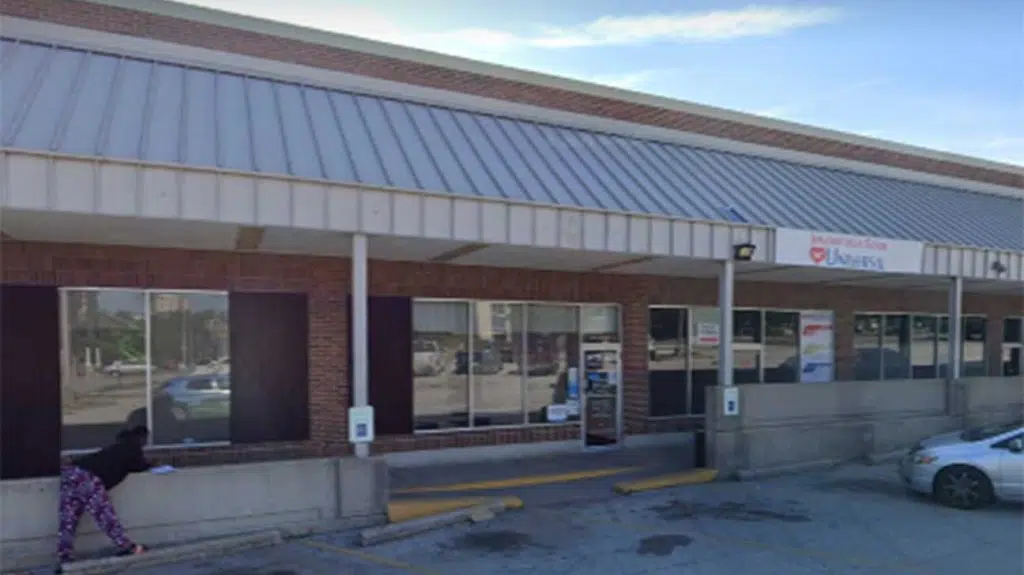
Addiction treatment centers that are targeted specifically to the LGBTQ+ community can offer a unique environment to suit their recovery needs.
For some people, this can make all the difference in ensuring that their recovery journey is successful.
These drug and alcohol rehab centers are specifically for people who are lesbian, gay, bisexual, transgender, queer, or uncertain about their sexual orientations or identities.
The staff at these rehab centers are often part of the LGBTQ+ community, or have had special training to increase their understanding of the stressors that the LGBT population faces.
LGBTQ+ Drug Rehab Centers In Kansas
The following is a LGBTQ+ rehab center in Kansas that is reputable and possesses certain marks of quality care.
Marks of quality care include:
- accreditation
- certification
- memberships in national organizations
Behavioral Health Group, Kansas City, Kansas
Behavioral Health Group offers addiction counseling and a range of medication-assisted treatment options in Kansas City, KS.
Medications used at this clinic include methadone, Suboxone, and buprenorphine.
This rehab center offers expansive counseling services in addition to medication-assisted outpatient treatment for opioid use and alcohol disorders.
Here you can find a specialized program that works specifically with members of the LGBTQ+ community.
Trusted features of quality care at this treatment center include:
- accreditation by the Joint Commission
- certification by LegitScript
- accreditation by the Commission on Accreditation of Rehabilitation Facilities (CARF)
Location and contact information:
1125 North 5th St.
Kansas City, KS 66101
(913) 342-0888
How Common Is Substance Use In The LGBTQ+ Community?
Alcohol abuse and drug addiction tend to be fairly common among LGBTQ people. This tends to be true for anyone who is in a minority.
People who are uncertain of their gender identity or sexual orientation often use drugs and alcohol the most as a means of self-medicating.
Those who are questioning or uncertain about their sexuality are up to five times more likely to abuse drugs and alcohol.
People who are LGBT are also more likely to have co-occurring mental health or behavioral health disorders such as obsessive compulsive disorder, bipolar disorder, or panic disorder.
Factors That Influence Substance Use Rates In The LGBTQ+ Community
Understanding why substance abuse occurs in high numbers among people who identify as LGBTQ+ can help better inform treatment programs to guide them toward addiction recovery.
Risk factors for LGBTQ+ people and substance abuse may include:
- confusion about gender identity
- having to hide sexual orientation from unsupportive family members
- feeling lost or hopeless
- lack of support network
- co-occurring mental health issues
- living with HIV/AIDS or other serious illness
- being unable to afford hormone therapy or gender-confirmation surgery
- past history of drug abuse or addiction
- being homeless or unemployed
What To Look For In A LGBTQ+ Drug Rehabilitation Program In Kansas
Many people who are LGBTQ+ find that they have the most success in addiction recovery when surrounded by staff and fellow attendees who can relate to their struggles.
Employees at this type of drug rehabilitation program often receive special training that allows them to be more affirming, understanding, accepting, and knowledgeable.
Some of the most effective treatment services for LGBTQ+ people include:
- family therapy to address conflict at home
- peer support and group discussions
- HIV/AIDS healthcare services and support
- aftercare and relapse prevention programs
- medical detoxification and medication-assisted treatment
- alternative therapies such as art therapy or music therapy
- trauma-informed counseling
- cognitive behavioral therapy and dialectical behavior therapy
- inpatient/residential treatment
- sober living homes and support groups
- outpatient programs or intensive outpatient programs
FAQs For LGBTQ+ Rehab Facilities In Kansas
The following are some of the most commonly asked questions about LGBTQ+ rehab facilities in Kansas and what they offer.
Do LGBTQ+ Rehab Centers Accept Private Health Insurance Plans?
The types of payments accepted will vary at each rehab center, but many LGBTQ rehab centers do accept private insurance, as well as state-funded insurance plans like Medicaid and Medicare.
Is Medically Monitored Detox Available At LGBTQ+ Rehab Centers In Kansas?
Medical detox is a crucial part of drug and alcohol addiction treatment programs.
Some rehab centers in Kansas will expect you to complete detox before admission. This is more common among outpatient rehab centers, but some residential rehab centers may not offer detox.
Can I Be Turned Away From A Rehab Center In Kansas If I Am LGBTQ+?
No respectable rehab program will ever turn you away for being LGBTQ+.
However, people who are LGBTQ+ may be most comfortable at a rehab center which offers specialized programs for them and their unique needs.
Find A LGBTQ+ Kansas Drug Rehab Center Today
Whether you are considering drug addiction treatment services for yourself or a LGBT loved one in Kansas, know that we are always here to help.
No matter what kind of substance abuse treatment center you are looking for, we can help you locate a drug and alcohol treatment facility near you — give our helpline a call today.
Published on August 3, 2022
Addiction Resource aims to provide only the most current, accurate information in regards to addiction and addiction treatment, which means we only reference the most credible sources available.
These include peer-reviewed journals, government entities and academic institutions, and leaders in addiction healthcare and advocacy. Learn more about how we safeguard our content by viewing our editorial policy.
- Centers for Disease Control and Prevention (CDC) — Gay and Bisexual Men’s Health: Substance Use
https://www.cdc.gov/msmhealth/substance-abuse.htm - National Institute on Drug Abuse (NIDA) — Substance use and SUDs in LGBTQ* Populations
https://nida.nih.gov/research-topics/substance-use-suds-in-lgbtq-populations - National Institute of Health (NIH) — The Relationship Between Discrimination and Substance use Disorders Among Lesbian, Gay, and Bisexual Adults in the United States
https://www.ncbi.nlm.nih.gov/pmc/articles/PMC2937001/ - Substance Abuse and Mental Health Services Administration (SAMHSA) — Find treatment
https://findtreatment.gov

